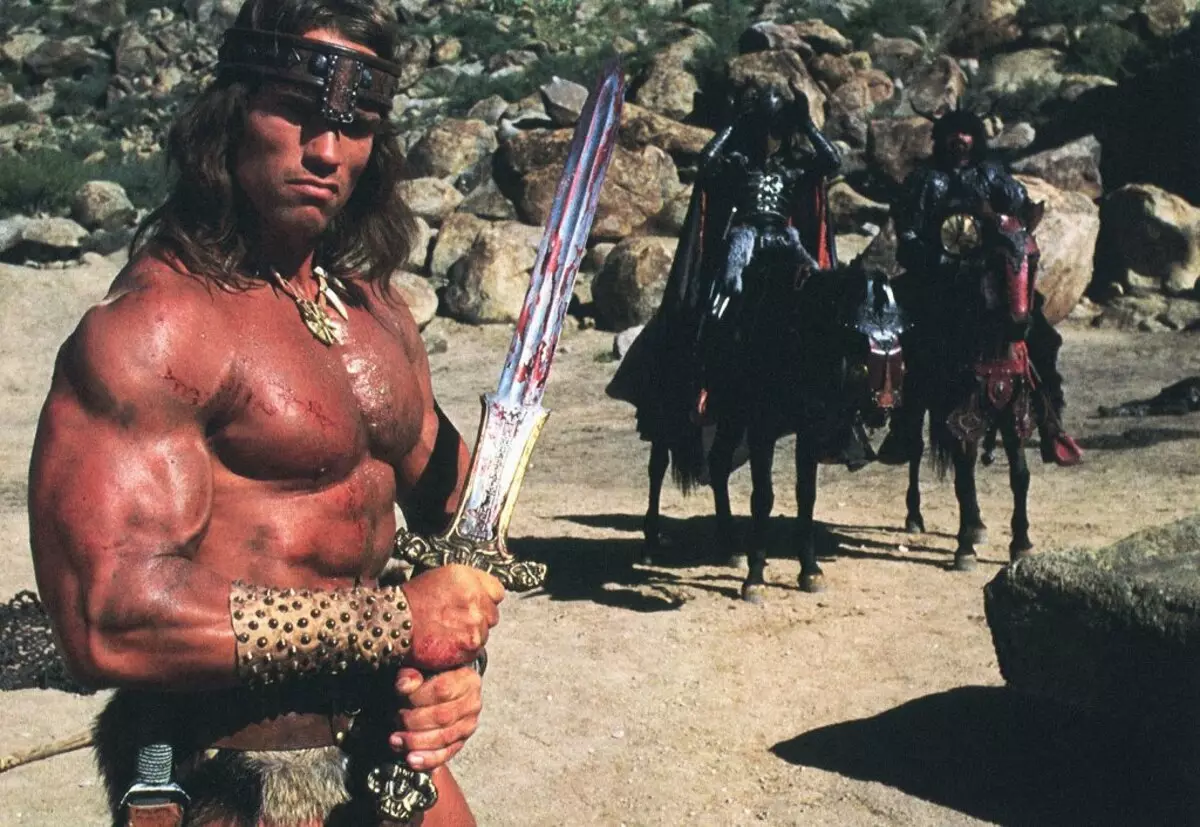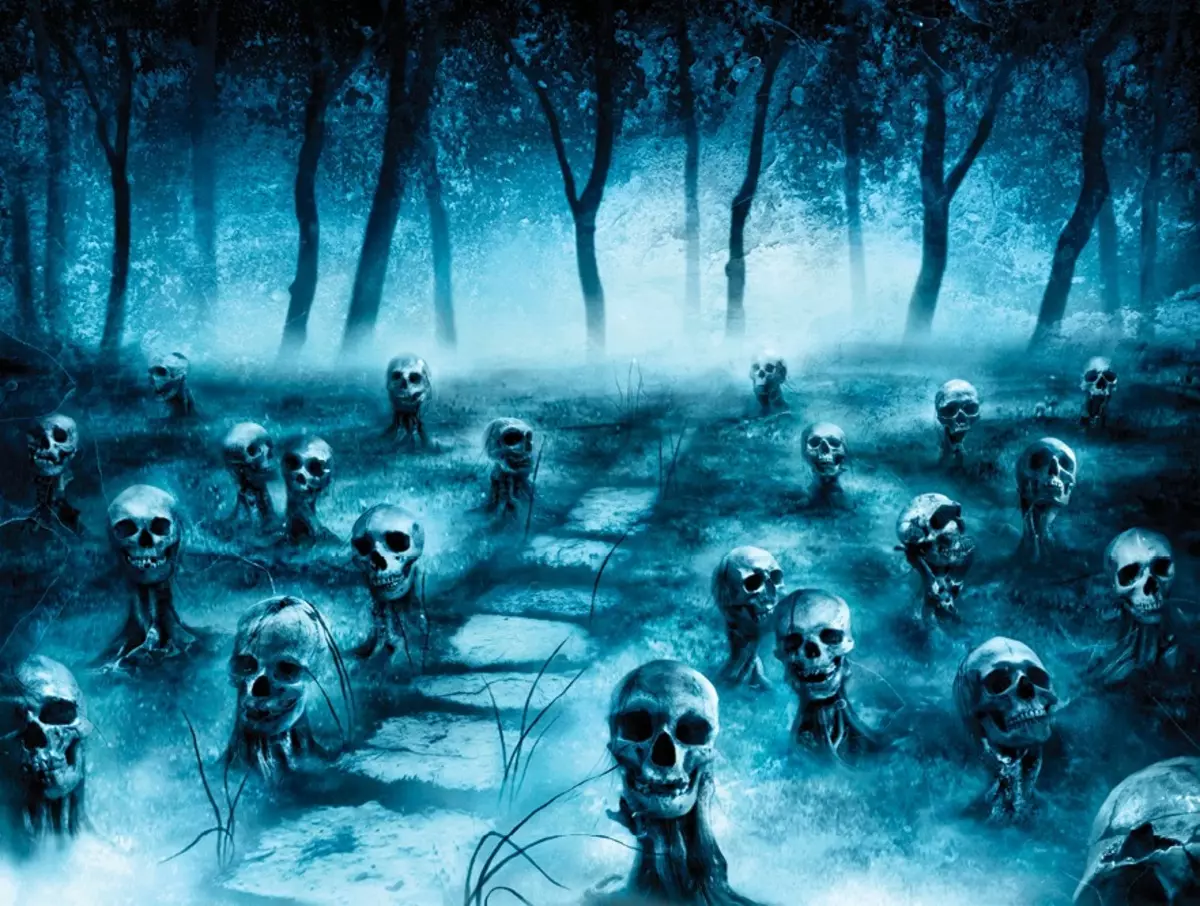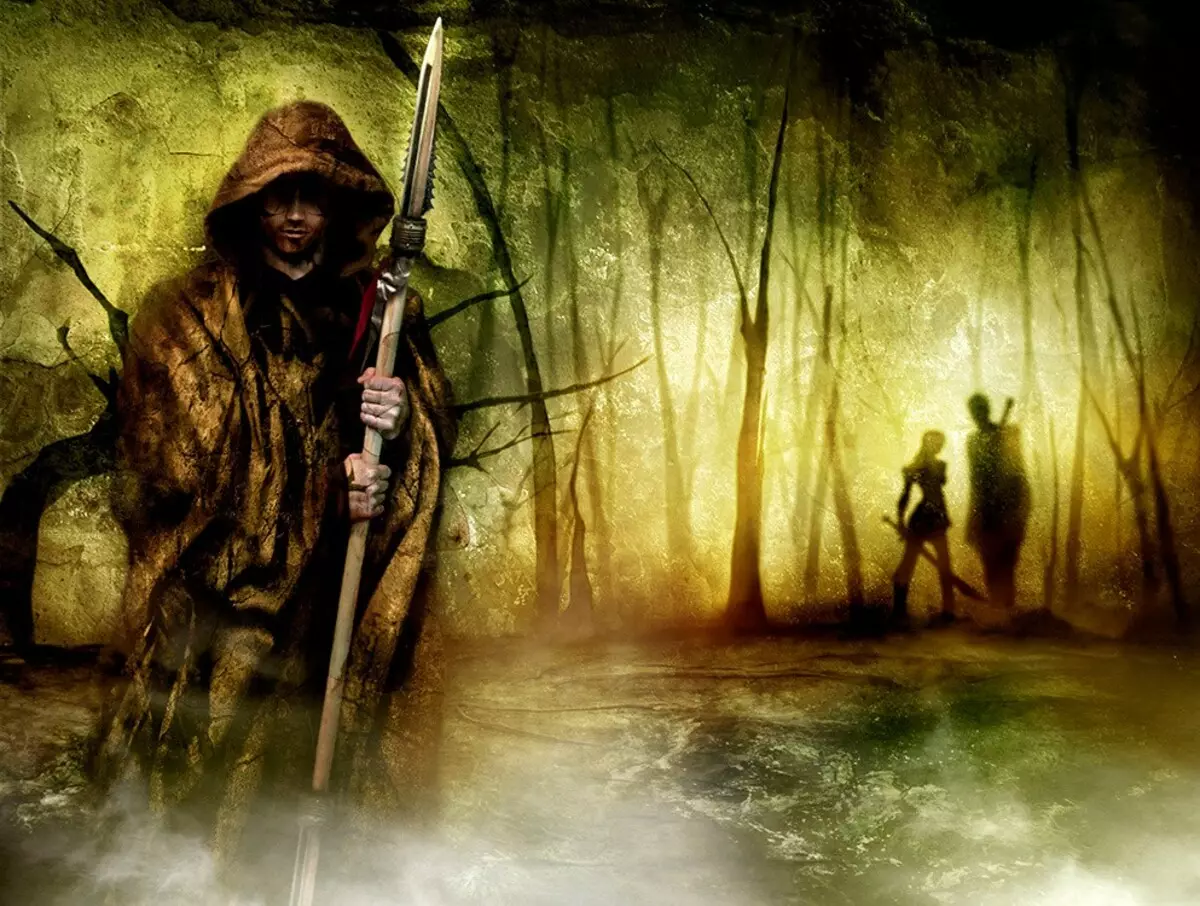Book Observer Vasily Vladimirsky tells how the author of "modified carbon" Richard Morgan threw science fiction, turned to the heroic fantasy and deceived all the fans of the genre.
The origins of the heroic fantasyIn 2022, the genre of heroic fantasy ("Literature of Might and Magic") will be fulfilled 90. It is quite officially: in December 1932, on the pages of the legendary Pap-magazine Weird Tales came out "Phoenix on a sword", the first story of Robert Irwin Howard about Konan from Kimmeria, Tom of hefty Varvar, whose image embodied on the film screen former California governor at the peak of his physical form. I myself do not know, Howard laid the foundation of the canon: a dozen ambal with a sharp piece of iron bumps magicians and demons, finds treasures and conquers beauties. And all this happens against the background of the picturesque ruins of ancient civilizations, in a simple and cruel world filled with a hostile man magic.
The cycle of Howard bribed his simplicity and the complete lack of didactics. Conan, classic alpha-male and supermarket with moral stands of Pavian, invariably defeated superior opponents forces not due to the accusable intelligence and non-optimity of ideals, but solely with the help of power, dexterity and inhuman intuition. Muscular Barbarian safely survived the suicide of his creator and the decade of oblivion - and waited for a new burst of interest in herself in the 1960s and 1970s.
At the same time, it gave a genetic material for thousands of clones that filled pages of magazines and books in a soft cover. Already in the second half of the 20th century, he became a favorite doll Voodoo for sarcastic studs of farts from Norman Spinradish with his "steel dream" (where heroic fantasy composes Adolf Shiklgruber emigrated to the USA) to Terry Pratchett with the "Flat World" (see Cohen Barbarian). But perhaps the very witty revision of the genre was held by Richard Morgan in the trilogy called "country worthy of his heroes."

We will not immediately guess that the Vottosbartkovsky "modified carbon", which was recently filled with Netflix, and a fantasy cycle "Country worthy of his heroes" ("Steel remains", "Colding Legions" and "Dark Gorges") one author. Too different genres. Briton Richard Morgan for a long time abandoned science fiction and turned to heroic fantasy in 2007, after a sharp, ideologically charged criticism - both on the left and right - his novel "Black Man". But readers who were waiting for the author of a clear observance of the traditions of the genre, hardly calculated.
Why the morgana cycle is not just fantasyIf you restrict ourselves to runya retelling, then everything in this cycle seems to be laid out on the classic canon as notes. A mighty barbarian mercenary, a participant in bloody battles, at the old age of the years the leader of the tribe, - is. The aristocrat-swordsman, adventurer and hero of the recent war - in stock. Sexy sorceress, the last daughter of the people who went to the blurred West is also here (however, it is, rather, a tribute to another subgenru - the epic fantasy). The gods and monsters, powerful empires and the ancient races, mysterious ruins and inconsolable treasures - in a wide range.
Everything is like that, but it is worth turning the tent of the pages, and it becomes obvious: Richard Morgan sequentially decomposes the stamps, destroying all the imaginable genre conventions. Wild barbarians-steppes in his trilogy are high, blue-eyed and ceiling. Mechnik-Aristocrat - Gay, not hiding his orientation. The immortal sorceress, local galadriel, not only prefers women, so also belongs to the tribe of black technocrats - manipulators, which centuries ago made an empire from scattered nomadic tribes and put on the throne of their depths - mortals. Well, the gods and demons of this world and at all the artifacts of civilization, which once experienced a technological singularity that turned the global catastrophe.

Richard Morgan breaks about the knee not only the cliché associated with traditional role characters. To the place typical for the genre of pubertal downturn on dominance, infertility admiration for the force and dexterity in the trilogy comes something fundamentally different. Almost in the same style and the same words, in detail, the author of the "Country ..." describes homoerotic episodes and combat scenes, which exhaustively characterizes its attitude not so much to erotica as to the "Boing".
In addition, the writer is not limited to the autopsy of the obvious Freudian subtexts of heroic fiction, like Norman Spinrad or Philip José Farmer. He inflicts a final knockout blow, which finally knocks the soil from under the feet of canon chambers: in his trilogy, the author comes into the territory of the socio-psychological novel for adults, which for the heroic fantasy of death is like, and in Grimarka, dark fantasy, is not particularly welcome.
Morgan then and the matter pounds his heroes in the deaf ethical deadlocks, which would simply not notice the Conan with his piece of iron and unshakable confidence in themselves. Is it possible to accept the fact that the emperor throne sits the spoiled boy with the sadist's pests, if he leads humanity along the path of progress? Or is it possible to oppose evil something except violence - especially in the world that is experiencing the latest convulsions of the Middle Ages?

And so on and the like on ascending, right up to the question of the theodice, the justification of God: why the Creator, Almighty and all-airily, allow pain and suffering (well, if we exclude the most obvious answer: because in fact no creator exists)? Politestam-pagans is simpler: their gods by definition are limited in the possibilities, everyone is responsible for their aspect of being. But simple mortals here much more noticeably affect the life of the pagan gods through daily rituals and sacrifices (which partly removes the problem of responsibility), and with a lot of luck can also take a place in Pantheon.
In the end, Morgan returns to the only thing that truly relates the "country ..." with early heroic fantasy. The author does not instruct, does not instruct readers, does not prescribe moral authority, does not try to break the heroes on the right and guilty, the lands and goats. All his characters, including the smartest and charming, is a dubious example for imitation and perfectly give yourself a report. He is just trying to figure out how this world is arranged, as the links between people and the gods are built and how far the limits of the possibilities of those and others are extended.
Not so far as it turned out. But it is enough to turn one separately taken literary genre from his feet.
Trilogy "Country worthy of his heroes"